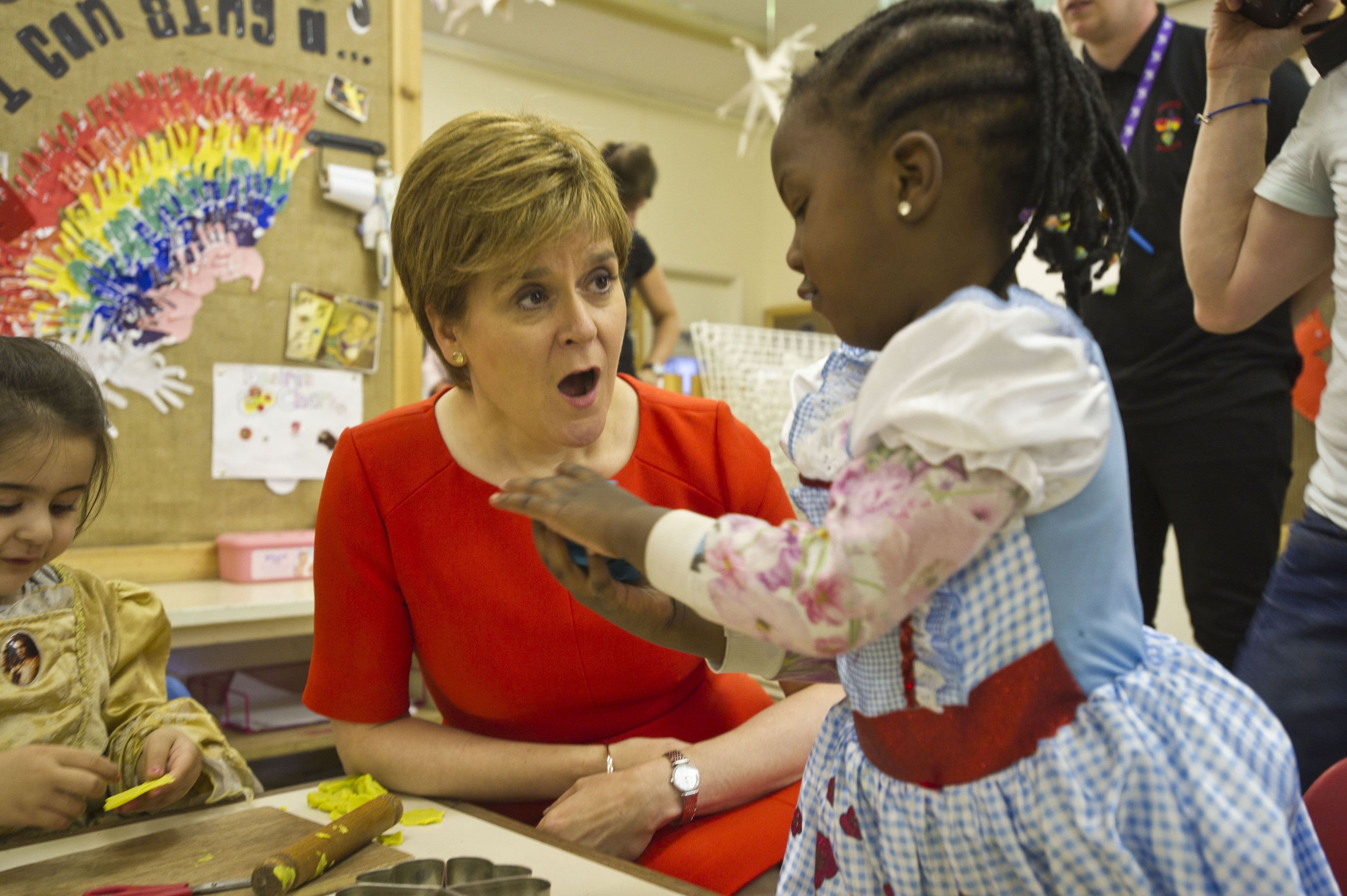
GROWING up in a working class community in Ayrshire in the 1980s, I was fortunate to be supported by loving parents.
I came from a stable home, and was supported in my ambitions to study law at Glasgow Uni – which I was able to do without paying any tuition fees.
But I was also conscious that many other children in communities like mine were badly affected by the policies of Margaret Thatcher’s government.
When I became First Minister, I said that improving education was my top priority.
The most important capital investment that we are making in this parliament is not in any road, rail line or bridge – it is in the infrastructure that will enable us to offer 30 hours of flexible, good-quality nursery education.
It is also a long-term investment in the education of our children.
And once they start school, we are reforming that system to ensure that all our children receive the most fulfilling and rewarding experience possible.
The Curriculum for Excellence has been endorsed by the OECD and our International Council of Education Advisers as a bold approach that equips young people with the skills they need in a constantly changing world.
But it’s not just about what kids are being taught. It’s about who is making the key decisions around their education.
Nicola Sturgeon reveals sexism she’s faced as a woman in politics
So after extensive consultation, this year we’ll be introducing a new Education Bill proposing more powers to head teachers, more support to teachers and strengthening the role of parents.
This is backed by significant investment. Over this parliament we’re giving an extra £750m to schools through our Attainment Challenge and much of it will go direct to head teachers.
They can decide how best to invest it – whether that is hiring extra teaching or support staff, new equipment or much more.
And to give our parents and teachers the fullest possible information about a child’s progress, we will phase in new standardised assessments in P1, 4 and 7 and S3 this autumn.
Improvements to our education system won’t happen overnight. It will take time before we see their full effect. Reform will continue and we will keep faith in our teachers. For the majority of our children, Scotland is a great place to grow up with a world of opportunity to explore.
Unfortunately, that is not the case for everyone. Readers of The Sunday Post will no doubt have been reflecting on this over the last few weeks as they read about the Smyllum Park investigation.
The revelations were sad and disturbing in equal measure, and I can only imagine the heartache experienced by those who had a connection to these children, or to the orphanage itself.
Given what happened, a memorial recording the many young lives which ended there seems appropriate – and I am pleased to hear that the Daughters of Charity have agreed to build a memorial.
More generally, an independent inquiry has been set up to investigate the abuse of children in care – one of the most thorough, detailed and wide-ranging public inquiries that Scotland has ever seen.
As a devolved government with limited powers, there are some areas over which we have little control – which is deeply frustrating.
The welfare cuts being introduced by the UK Government are having a devastating effect on poverty levels. It has even scrapped statutory targets to reduce child poverty.
This year we will pass our own wide-ranging Child Poverty Act which will reintroduce these targets in Scotland.
We are investing more than £100m a year in mitigating some of the worst of the cuts, but as long as the key welfare levers remain at Westminster, we’ll be fighting child poverty with one hand tied behind our backs.
It may be a cliche to say that young people are our future.
But it happens to be true.
When today’s young generation grow up, I want them to look back and be able to say that we did everything we could to give them the best possible start in life.

Enjoy the convenience of having The Sunday Post delivered as a digital ePaper straight to your smartphone, tablet or computer.
Subscribe for only £5.49 a month and enjoy all the benefits of the printed paper as a digital replica.
Subscribe